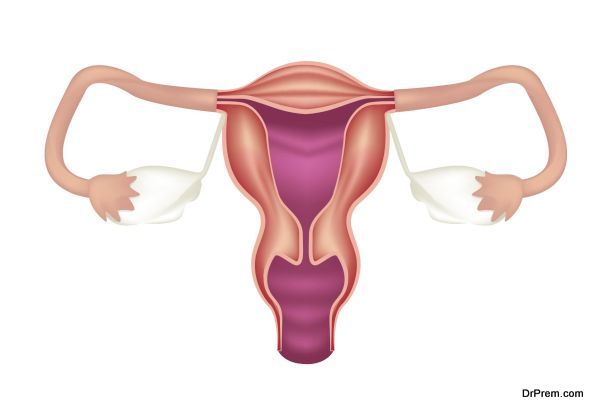Polycystic ovary syndrome: Prevention
Top Prevention
1. Birth control pills
Intake of birth control pills is a common treatment suggested for controlling and preventing PCOS. Birth control pills help in the regulation of menstruation and this will also help in the treatment of a variety of discomforts like hair fall and polycystic acne. Pills contain progestin and estrogen or only progestin and they help in the regularizing of menstrual cycle, providing a chance for the uterine lining to shed regularly. This will prevent thickening of the uterine lining and decrease the risk of endometrial cancer. Pills, however, could have side effects and is not advised for women who are predisposed to certain types of cancers of the reproductive organ.
2. Exercise
Exercise helps when you are obese and have an excess production of estrogen in your body as a result of polycystic ovary syndrome. Regular exercise helps in the reduction of weight and when the weight is reduced, the estrogen production too will be regulated by the body, making your periods regular and correcting the imbalance in ovulation cycle. Exercise helps in reducing the risk of diabetes, hypertension and heart disease as well, along with decreasing one’s insulin resistance and providing way for fertility as well. A five percent decrease in overall body weight can lead to great improvement in your symptoms of polycystic ovarian syndrome.
3. Medications for insulin resistance
Many researchers have been conducted on the link between insulin resistance and polycystic ovary syndrome. Therefore, it is important to treat this condition in order to prevent the symptoms of polycystic ovary syndrome from setting in and also to prevent diabetes which itself can be a difficult condition to control. Metformin is the medication that is normally prescribed to treat insulin resistance. This medication controls the production of glucose in the liver so that it reduces the need for more insulin. This helps in restoring the fertility of the woman and also in controlling the male hormone androgen.
4. Fertility drugs
At times, treating the symptoms related to PCOS becomes much more important than the condition itself. In fact, the diagnosis of polycystic ovay syndrome is mostly made when a woman finds it difficult to conceive after several attempts. To prevent infertility that is related to PCOS, fertility drugs like Clomid are used. The estrogen receptors that are found in the brain are blocked by the use of Clomid and the body is tricked into the production of more FSH and LH which again stimulate the ovulation process. Once the ovulation process becomes normal, PCOS can be prevented and fertility is made a possibility.
5. Chaste tree
Several natural treatment methods are used for the prevention of polycystic ovary syndrome. One of the most common natural treatment methods that can not only prevent polycystic ovarian syndrome, but also treat it effectively is the use of ‘chaste tree’ or Vitus agnus castus. Chaste tree works by stimulating the pituitary gland and regulating its function so that the luteinising hormone which is released is well balanced and ovulation becomes more regular. Trials on chaste tree have given encouraging results in the field of infertility as well and, hence, chaste tree can help in treating PCOS related infertility too.
6. Diet and supplements
Most patients who get PCOS are deficient in key vitamins and minerals that are necessary for reproductive health. The important of a balanced diet becomes even more critical when you are on an oral contraceptive pill as the imbalance becomes much more pronounced in such cases. A good multivitamin tablet can be taken daily and vitamins and minerals to be included in your diet and as supplements are chromium for controlling hunger pangs and weight loss and for insulin’s response on the blood sugar, zinc for blood sugar balance and thyroid health, magnesium for combating insulin resistance, coenzyme Q10 for carbohydrate metabolism and production of energy, B complex vitamins for hormone imbalances and fat burning etc.
7. Blue cohosh
As the symptoms of PCOS can lead to many reproductive problems, the use of Blue cohosh as a preventive makes sense. Blue cohosh helps in strengthening the uterine and ovarian walls and also acts as an anti-inflammatory agent, thereby relieving pain and cyst formation associated with polycystic ovary syndrome. A herbalist will have to guide the patient in deciding the correct dosage for prevention and control. Intake of blue cohosh will also heal any irregularities in the ovarian and uterine walls and keep the reproductive system strong and well functioning.
8. Acupuncture and aromatherapy
This ancient Chinese method of treatment targets certain energy points in the body for relieving the symptoms and development of PCOS. The pressure points that are worked upon prevent blood stagnation, improve circulation and reduce pain as well. Acupuncture can be especially beneficial for the cysts in the uterus that are formed due to amenorrhea. Aromatherapy involves the use of essential oils for massaging your body. This helps in the rebalancing of hormones and relaxation, thereby supporting the reproductive system and stimulating it to ovulate. Care must be taken to ensure that experienced and registered acupuncturists and aromatherapists are approached for the procedure.
9. Licorice and peony
Licorice is a natural herb that is used for regulating hormone imbalances in the body. With PCOS, the hormone imbalances in the body can lead to infertility. Treatment with licorice will also reduce the prominence of androgen hormone in a woman’s body and reduce symptoms like excess hair growth. Liquorice also improves the ratio of FSH and LH in the body. Peony helps in the reduction of androgen levels and treats the progesterone and estrogen imbalance in the body. Together, they can attain a better result for the prevention and treatment of PCOS.


